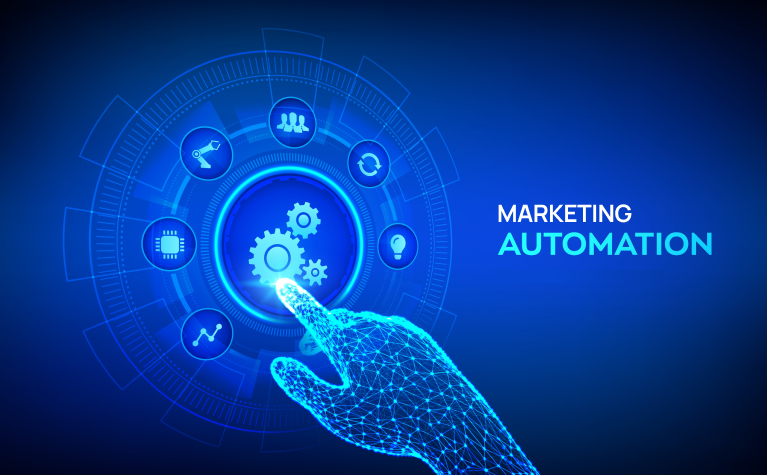Amidst the rapid growth pace & intense competition that prevails in the technology world today, organisations are under perpetual pressure to better their operations with top CRM solutions for tech companies. A powerful customer relationship management (CRM) technology is one of the best software to help you accomplish these objectives. CRM systems enable IT companies to better manage and analyse customer interactions, improving the execution of conducting business.
Regardless of whether you are a managed service provider(MSP), software integrator or a pro in tech consulting services, here are some CRM capabilities specifically customised for the information technology industry that will help you grow better, work better and assure better results for your clients.
In this article, we’ll examine the seven critical CRM features that every IT company should take into account and explore how they all lead to improved service offering, team cooperation, and business longevity.
1. Client Information in Centralised Database
In the IT sphere, optimal client relations and service delivery require effective client data management. The best CRM for managed service providers not only stores vital information but also gives your team access to client communication history, service requests, and project status, which are essential for meeting client requirements.
Ways Centralised Databases Enhance IT Operations
A condensed CRM database integrates all customer-related data into a single “point of truth”, which ensures all divisions, including sales, support, and project management, are operating using the same reliable source of truth. The painstaking process of hunting for documents, spreadsheets, and emails around different tools is a thing of the past. System centralisation allows easy access and tracking of all information on customers in one place without any lost or missing information. Improved communication, the reduction of mistakes, and overall enhanced work processes are some benefits of having a single point of access.
The best CRM for technology companies allows the storage of multiple customer-related data, including long-term support customer support preferences, ongoing projects, contract renewals to be catalogued, and previous concerns. Storing data in silos makes it near impossible for IT companies to solve more complex issues. By housing all of this data in one central location, companies help relieve client concerns due to enhanced data precision and improved servicing, making it easier to align with customer goals.
Such a system also improves inter-employee and interdepartmental communication by allowing customer service agents, sales representatives, and technical staff to sync and coordinate their efforts. Centralisation helps improve trust with clients and fosters strong relationships, which leads to better retention.
2. Customised Dashboards for Better Visualisations
Visualising crucial information quickly is essential to making decisions on time. Custom dashboards in CRM systems are quite beneficial for IT companies since they help managers, salespeople, and project leads monitor their metrics in real time with ease.
How Custom Dashboards Help IT Companies
With custom dashboards, IT companies are given the freedom to create views that best serve their particular requirements. For instance, a project manager may want to design a dashboard that shows progress on numerous projects, highlights milestones, and resource allocation. Similarly, sales teams can monitor lead conversion ratios, opportunities in pipe along with sales targets.
IT businesses can notice and address issues before they escalate, with the ability to visualise KPIs and data trends. Such transparency not only fosters collaboration among different teams but also enables all business leaders to stay abreast with information pertaining to all divisions of the company.
Besides, benchmarks reveal that organisations that leverage CRM dashboards have a 25% uptick in productivity, with a marked improvement in decision-making speed as well ( Source: McKinsey & Company). Providing a swift snapshot straddling multiple levels of a company’s performance, dashboards allow companies to make rapid decisions informed by data, improving service, and hence customer satisfaction and relationships.
3. Automated Workflow Management
Automation is a disruptive change when incorporated into CRM systems for companies within the IT industry that service multiple clients with complicated service requests. This technology reduces the administrative burden associated with servicing clients, allowing teams to redirect their energies to tasks that are more valued and beneficial to the customers.
How Automated Workflows Benefit IT Services
CRM automation allows businesses to set up processes for workflows that will initiate certain actions based on specific criteria. As an example, take a scenario where a client raises a support ticket. The CRM for IT & technology services can automatically assign the ticket to the relevant technician, acknowledge the email to the client, and set up a follow-up task for the support team. Such automatic processes guarantee that all essential steps are accomplished while saving time and minimising manual oversight errors.
Automation’s capabilities shine brightest in the area of communications with the client. For example, during a certain stage of a project, automation can notify clients as part of the workflow, thus providing them with service updates, which helps automate communications entirely.
As noted in several systematic reviews, CRM Automation can reduce as much as 35% of administrative tasks (Source: Salesforce). This is extremely advantageous for IT companies since employees no longer need to dedicate time to tedious administrative tasks, which allows them to focus on improving the customer’s journey, such as alleviating clients’ issues, executing intricate project tasks, or developing new services.
4. Automated Customer Support
Change is inevitable, and technology—AI to be specific—has and continues to reshape industries across the globe, including IT. AI can transform CRM systems by implementing customer service-grade chatbots, recommendation engines, and even predictive analytics, thus boosting operational productivity and customer service.
The implementation of the tech industry with AI agents serves a great purpose when it comes to assisting the customers of IT service providers.
The use of AI enables chatbots to serve as CRM systems with self-service customer care available around the clock. Chatbots can respond to basic queries, perform troubleshooting processes for frequent problems, and reply to customer requests almost instantly. This helps improve response times by a great deal and allows customer service agents to deal with more demanding inquiries.
Using predictive analytics involves vetting a customer’s data and interactions to anticipate their future needs and offer solutions ahead of time. With AI, businesses can estimate the time a client may need for additional services and upgrade packages. This self-service approach not only boosts customer satisfaction but also keeps IT companies preemptively responding to their clients.
With the automation in CRMs and IT, AI technology has the capacity for improving 40% customer satisfaction and up to 30% sales conversions (Source: PwC). This implementation boosts conversion rates and sales numbers as well, turning IT into a must in other fields.
5. Integration with Various Other Systems and Tools
Customers are the support systems for project management, customer communications, and finance tracking. Line-of-business platforms and CRMs work alongside each other but are distinct in their functionality, each supporting different aspects of business management. Smooth interaction between these advanced systems improves the workflow and accuracy of integrated information, which allows for the management of entire departments.
The Significance of CRM Integration for IT Firms
Synchronisation of a company’s CRM with other systems like marketing, accounting, or even project management software becomes possible with CRM integration. For instance, when a top CRM solution for tech companies is integrated with a project management software, project calendars can automatically reflect changes in progress, client updates, and deliverable milestones. This streamlining prevents redundant data input and improves cross-team alignment for all client-facing departments.
Also, CRM systems integrated with invoicing tools can simplify billing functionalities by automatically sending invoices after services are provided or important milestones are reached. Reduced administrative effort with the invoicing and payment cycles enhances the speed of receiving payments.
Companies that utilise integrated CRMs report a 32% increase in operational efficiency (Source: Salesforce). Integrated system with seamless data synchronisation streamlines duplication and enhances overall data accuracy and reporting. IT companies can make more informed decisions and greatly improve service delivery.
6. Enhanced Analytics and Reporting
IT firms remain competitive by making the most of every opportunity available to them, and this can only be done through effective, data-driven decision-making. Advanced CRM reporting and analytics tools offer comprehensive overviews and monitor client interactions and sales, enabling IT companies to better strategise.
How Advanced Reporting Enhances Performance in IT Companies
The advanced reporting features of the CRM system allow businesses to capture client satisfaction, sales, project completion rates, and even more, through custom reports. This information aids in informing decisions by ensuring that there has been successful strategy implementation, improvement identification, and client optimisation.
Advanced reporting tools provide insight into the course of business dealings with clients. For example, it may become meaningful to know that clients with a particular type of business may need extra help during specific seasons. Through these observations, IT companies are better positioned to serve their clients predictively.
Research shows businesses that incorporate analytics with raw data see a more significant change, with up to a 60% increase in sales (Source: Nucleus Research). This conclusion is perfectly aligned with the argument that clearly defined strategies supported by statistics outperform vague plans built on thin air with no AC. IT companies stand to benefit a lot from data-rich CRM analytics on the market.
7. Mobile CRM for On-the-Go Access
In today’s digital-first world, the ability to access client information and track service delivery on the go is essential. Mobile CRM apps allow IT companies to stay connected, even when employees are working remotely or in the field.
The Significance of Mobile CRM for IT Firms
It generates CRM problems for IT businesses with remote office personnel, like technicians posted at customer locations and travelling sales personnel. With mobile CRM, sales representatives can update client data, record updates, follow up on leads, and close transactions during client meetings, which greatly increases and optimises mobility enablement.
Through the mobile app, field technicians can update service tickets, check and track the status of equipment, and even request assistance. This level of connectivity increases the accuracy of responding to service requests, improves complete and accurate record keeping, and improves inter-departmental coordination on service request tickets.
Enhanced mobility and mobile CRM systems have been proven to increase sales productivity by 22% and customer service by 18% ( Source: Nucleus Research). IT companies with field staff and visiting customer engagement activities can ensure that their employees are up to speed with developments.
Why Sharp AI Is the Ultimate CRM Solution for the IT Industry
In the high-pressure business sector, the MSP & IT services CRM should be more than just a software solution. IT industries need a smart, adaptable, and industry-specific solution to keep them competitive. Built with a deep understanding of the IT industry’s complexities, Sharp AI is a powerful, AI-driven platform designed to streamline client management, automate operations, and deliver actionable insights from a unified interface.
What sets this software apart is its ability to grow with your business. Whether you’re a startup managing a few accounts or an SME tech firm handling enterprise-level projects, this technology scales effortlessly to match your workflow. Its customisable modules allow you to tailor the system precisely to your operational needs, ensuring that no feature goes unused and no process remains inefficient.
It also offers intelligent automation and predictive analytics that help you make proactive, data-backed decisions. It can anticipate client needs, optimise service delivery, and even automate repetitive tasks like follow-ups, ticket routing, and billing, freeing your team to focus on what matters: innovation and growth. It has seamless integration with over 336 popular tools, which means you don’t have to overhaul your existing systems. Everything works in harmony.
Simply put, Sharp AI is your strategic partner in dealing with the demands of the IT industry. It is the clear choice for companies looking to future-proof their operations and deliver premium customer experiences.
FAQs
Can CRM systems help IT companies manage their projects?
Yes, CRM systems can significantly enhance project management for IT companies. They can be integrated with project management tools, allowing businesses to track project timelines, assign tasks, monitor progress, and ensure that client deliverables are met on time. This integration helps improve coordination between teams and keeps clients informed about project status.
How does CRM improve customer retention in the IT industry?
CRM systems help IT companies build and maintain strong customer relationships by providing tools for personalised communication, tracking client needs, and responding quickly to service requests. By centralising client data and automating follow-ups, CRMs ensure timely communication and better service delivery, which ultimately leads to higher customer retention rates.
Is CRM useful for managing service-level agreements (SLAs) in the IT industry?
Yes, CRM systems can be instrumental in managing service-level agreements (SLAs) for IT companies. They can track SLA compliance by setting reminders for key milestones, monitoring response and resolution times, and ensuring that agreed-upon service standards are met. This helps IT businesses maintain high-quality service and meet client expectations consistently.
What are the benefits of using a cloud-based CRM for IT companies?
Cloud-based CRM solutions provide IT companies with the flexibility to access client data from anywhere, which is particularly useful for businesses with remote teams or field technicians. These systems also offer automatic updates, scalability, and secure data storage, reducing the burden of maintaining on-premise infrastructure and ensuring that client information is always up-to-date and accessible.





